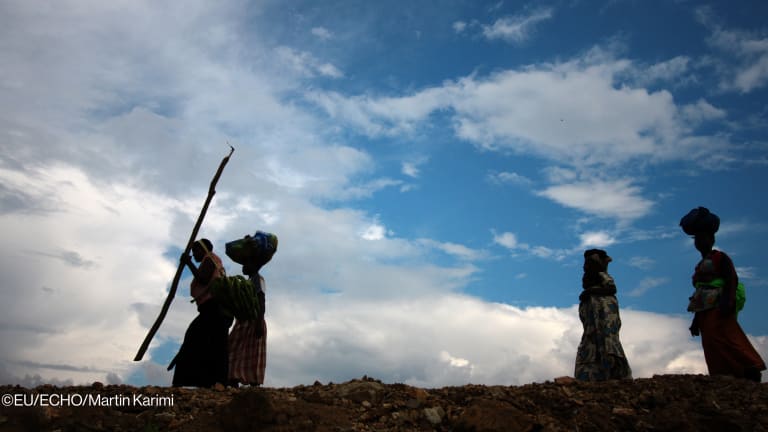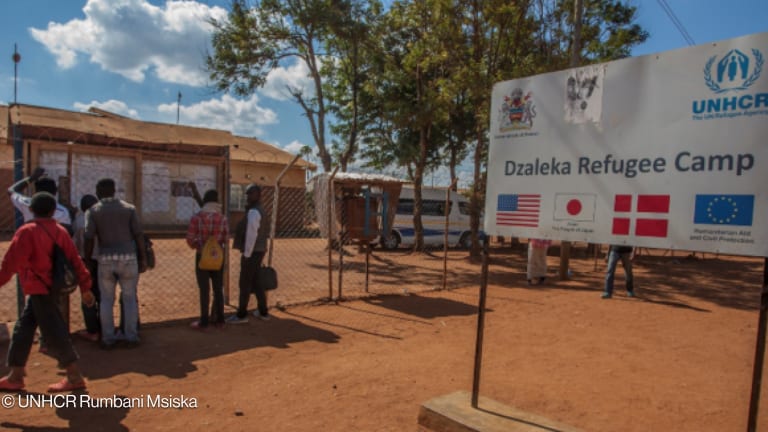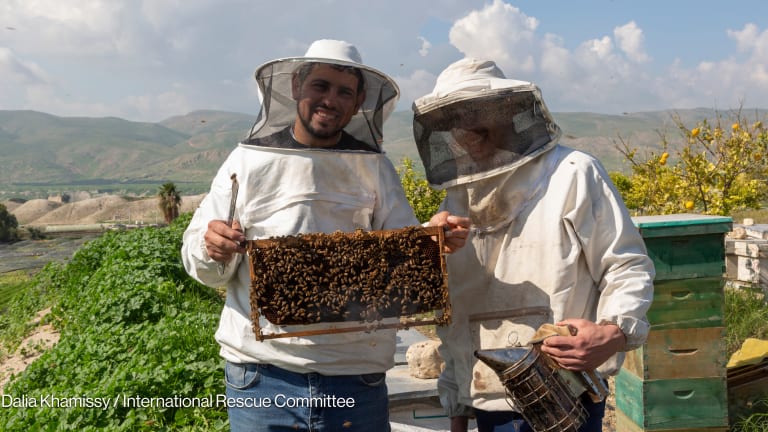
A new year can bring a variety of resolutions. Often, they are promises to improve lives and make the world, amid news of violence and conflict, a better place. In the past year alone, we have been inundated with stark images of war and of refugees fleeing from war-torn countries.
“Without giving children opportunities to grow and play, we are facing the threat of losing an entire generation.”
— John Goodwin, CEO, LEGO FoundationBut the vast majority of us are removed from the chaos of these emergencies, and we often feel powerless to help. The new year, however, can provide us momentum and strength of resolve to forge ahead.
The scale of the global refugee crisis is staggering — right now, 68.5 million people are displaced worldwide. Among them are 28 million children. Refugee children are often the most overlooked in these crises, and in turn, the most at risk of never overcoming their circumstance during the most crucial time of their growth and development. For these children, war and displacement have interrupted one of the most important pathways to early learning and development: learning through play.
While global humanitarian efforts are at an all-time high, according to the latest Global Humanitarian Assistance Report, less than 3 percent of humanitarian funding supports education for refugee children, with only a small fraction of that being allocated to early childhood development. A child’s early years of growth and development are critically important to lay a solid foundation for lifelong development and learning.
Research shows that all children need play in order to learn and grow. Play supports children’s psychological, emotional, and cognitive health and development, and hones the resilience they need to thrive and build their future. Through play activities such as building toys with found objects, making music, and role-playing, children learn communication, imagination, and empathy.
With these skills, all children, especially those affected by conflict, can thrive into adulthood and rebuild their communities. Further investment in early childhood interventions is critical in yielding long-term gains in educational attainment, economic prosperity, and health.
For young children in crisis zones, trauma and displacement can have a lasting detrimental impact on their development into adulthood. Without giving children opportunities to grow and play, we are facing the threat of losing an entire generation. This year, the international community must take a renewed focus on providing positive learning experiences to these populations in order to stop this vicious cycle in its tracks.
The humanitarian system meets critical basic survival needs, including food, clean water, and shelter. But we believe that learning through play is an immediate need for children that fundamentally impacts their growth and development. Today, the average refugee spends more than 10 years living in a refugee camp and these children need and deserve more.
If we want to make real change and set this young generation on a path of success, the global community must come together immediately to address this issue within these crises. A coordinated humanitarian response is critical for real impact.
That’s why we at the LEGO Foundation have committed $100 million to join the charge with our partners, Sesame Workshop, Bangladesh Rural Advancement Committee, the International Rescue Committee, and others. By bringing unique and complementary actors together, we can ignite real change and expand on work that we’re seeing as essential and impactful.
Working alongside existing aid systems, our aim is to support millions of children and their families affected by crisis living in Bangladesh and throughout the Syrian response region by providing quality play-based early childhood interventions in partnership with Sesame Workshop.
Over the next five years, we will build and expand play-based learning centers in host communities within Bangladesh and the Syrian response region, and support parents and caregivers to better engage in play with their children.
Our goal is to strengthen understanding around how to best deliver learning through play for infants and young children during humanitarian crises — and in everyday life. We know that play-based education can be applied to early development strategies for youth all over the world. Through research and collaboration with other partners working in this space, we will identify the best practices for play-based interventions, especially for children who are undergoing trauma and displacement.
To create sustainable peace, the international community must not overlook the power of providing play-based learning opportunities from birth and incorporate these tactics into a larger humanitarian response strategy that puts all our children on a healthy and nurtured lifelong path.








